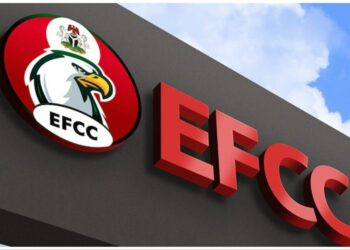 Price conscious Nigerians are returning to their old buying habits. They are turning to neighbourhood stores and open markets for their daily needs as the economic downturn puts pressure on their stagnant incomes.
Price conscious Nigerians are returning to their old buying habits. They are turning to neighbourhood stores and open markets for their daily needs as the economic downturn puts pressure on their stagnant incomes.The change is already impacting negatively on high street retailers in the malls, as they have been hard hit by dropping sales revenues, forcing some of them to cut down on staff and outlets.
Top fashion retailers Da Viva; Ruff ‘n’ Tumble have been forced to close some outlets, while Truworths International limited and Markham, both South African clothing companies have shut down their stores completely in Nigeria.
‘‘We have closed some of our outlets. We are facing a market with diminishing buying power and malls that are dollar-denominated in a country where we sell in naira,’’ said Adenike Ogunlesi, founder & CRO of Ruff ‘n’ Tumble.
For retailers located in high-priced and sometimes dollar “rent” malls grappling with foreign exchange shortages, they have now to compete with informal stores in markets such as Tejuosho, Balogun, Oshodi and other open stores which are luring customers away and often have lower prices because of lower overheads.
‘‘It has been tough and rough. We had to sack some of our staff because we are making little or no sales,’’ said Adeyinka Saka, a manager at Maybrands, an accessories store in Ikeja City Mall.
At the malls, the price ranges for female handbags are between N22, 000 and N100, 500 depending on the brand and size, while wallets go for between N7, 000 and N16, 000.
Also, the price of shirts and blouses is between N12, 000 and N25, 000, and a dress is between N15, 000 to N80, 000 depending on the type, quality and brand.
The price of female handbags in Tejuosho market ranges between N4, 500 to N10, 000.
While retailers in the malls are complaining of depressed sales, their informal counterparts are witnessing improved sales as shoppers flood their stores.
Chigozie Nwanne, a bag retailer at Tejuosho market in Lagos, says he used to travel to Cotonou, the economic centre of Benin Republic, once a month to restock his shop but had to increase the frequency to four times a month and double the quantity of goods he purchases.
According to Nwanne, more shoppers are now patronising his items.
‘‘We are seeing a lot of new faces. People we know do not shop in stores like this before,’’ Nwanne said.
‘‘Before now, a 300kg sack of bags took me up to two months to sell off but these days a 600kg bag goes off in less than three weeks.’’
Nigeria’s economy has recorded three straight quarters of negative growth this year.
Average incomes in the country fell by about 18 percent in 2015 to $2,550 per annum, from over $3,000 in 2014, according to World Bank estimates.
Meanwhile, about 4.6 million Nigerians have been added to the unemployment rolls since the second quarter (Q2) of 2015 as the unemployment rate jumped to 13.3 percent in second quarter 2016, from 8.2 percent in the earlier period.
Some consumers who spoke to BusinessDay, say they shifted to informal stores because of the pocket-friendly prices on offer, especially during the current challenging economic period.
‘‘I used to shop at the malls but I cannot afford to do so anylonger, as the prices have almost doubled. Besides, one can also get quality clothes at reasonable prices outside the malls,’’ said Olivia Maduekwe, a banker in Lagos.
Michael Mark, CEO, Truworths International Limited, said earlier this year, that stores in countries bordering South Africa were doing well. The same is the case for stores in Ghana.
“It is just Nigeria that is not and we would go back there if everything changes,” Mark said.
Nigerians recently rediscovered their mall culture as the middle class enjoyed a better lifestyle since the early 2000s with the return of democracy and high crude oil prices which helped support high incomes for a good segment of Nigerians. That is no longer the case, following the steep fall in crude oil prices, which has plunged the country into a recession.











